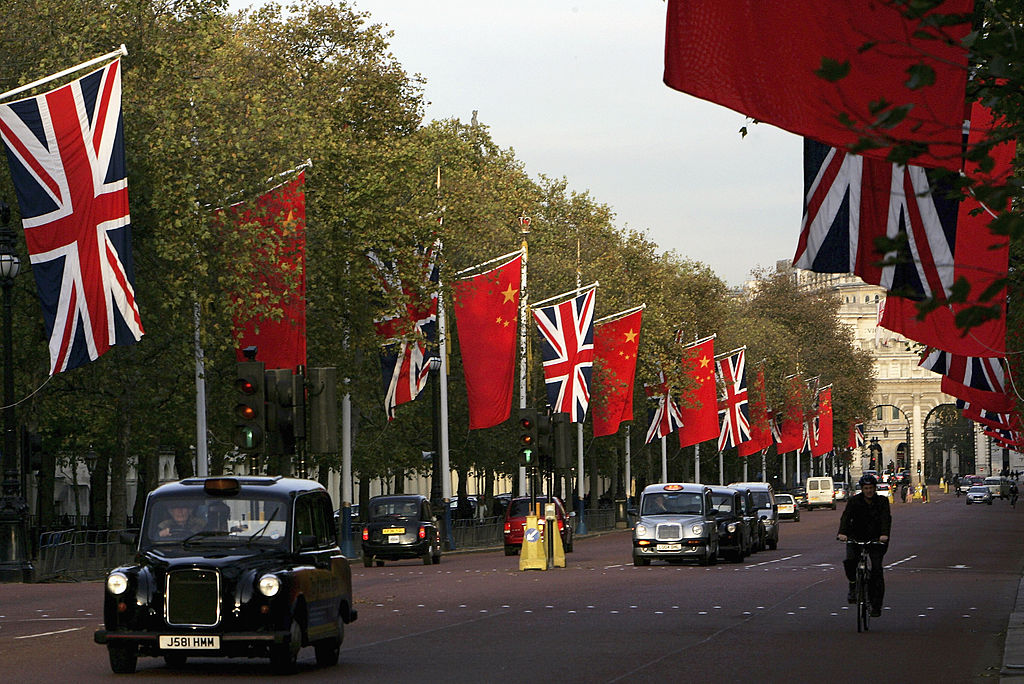As Rachel Reeves, flies to Beijing , she will have plenty of support from those who claim that the UK needs China for its economic wellbeing. The country ‘needs more engagement with China’, said Business Secretary Jonathan Reynolds in October last year at the International Investment Summit put on soon after Labour’s election victory.
The facts, however, say otherwise.
For a start, China is not that an important economic partner for the UK in terms of trade or foreign direct investment (FDI).
The People’s Republic is only the UK’s fifth biggest trade partner, accounting for 5.1 per cent of trade. Ireland alone received £24 billion more of British exports than China in 2023.
Despite the fanfare (or worry, depending on your position) of Chinese investment in British infrastructure, from Heathrow Airport to Northumbrian Water, the amount held is actually relatively small. Take FDI stock, or the amount of inward investment made into the UK by another country over time. As of 2022, China’s FDI stock in the UK was just £4.3 billion, accounting for 0.2 per cent of the total. By comparison, France’s FDI stock in the UK was £91.6 billion (4.8 per cent of the total), and Germany’s £41.1 billion (2.2 per cent).
Another reason for developing closer ties with China, so the argument goes, is that a market of 1.4 billion people is too big to avoid. But avoid it most British companies do. The UK’s FDI stock in China is just £11.2 billion, accounting for 0.6 per cent of the total, and in the past year or so British exports there have dropped by a third.
The lack of UK investment there is partly because of cultural and language difficulties. But it is also because of the prominent risk of intellectual property theft, difficult-to-acquire licences to work, and tough trading conditions in a country not lacking in domestic competition. There are plenty of other markets that British firms could look to for outward investment, for example in South East Asia, with its burgeoning economies and the use of English as a lingua franca. In contrast to that with China, British trade with the region increased by 20 per cent from 2022-23.
Another argument for encouraging economic relations with China is to take advantage of their technology. In November last year, for example, it was reported that Sir Sherard Cowper-Coles, who was once forced to step down from his job as head of public affairs at HSBC after he reportedly called Britain ‘weak’ for going along with US demands to curtail business dealings with China, stated that the UK should be a part of China’s technological progress. The two countries, he said, ‘should and must have’ a shared future.
It is true that the People’s Republic is a global leader in many new technologies. Research published last year by the Australian Strategic Policy Institute (ASPI) shows that China is now leading the way in 57 out of the 64 technologies it assesses, including in vital technologies of the future like quantum sensors and high performance computing.
However, there is a significant security risk associated with using Chinese tech. This was highlighted in 2020 when the government ordered the removal from the British 5G network of hardware developed by the Chinese company Huawei. But the threat from Chinese tech exists elsewhere too. As the former diplomat and China expert Charlie Parton has written, Chinese cellular modules – ubiquitous small components embedded within equipment or devices – are almost all made in China. This gives Beijing the opportunity to interfere in the UK, for example by taking down parts of the power grid through smart meters, or by bringing London to a halt by disabling traffic control systems.
Any move to increase the UK’s reliance on Chinese technology would not only raise the risk of interference, but it would also annoy the US.
It was pressure by the first Trump Administration that led to the Huawei decision, and there is every indication that his second term in office will strike an equally hostile tone to China.
The UK cannot ignore this because it is economically reliant on the US. It is Britain’s number one trade partner, worth three and a half times more than trade with China, and the source of 34 per cent of the UK’s total FDI stock. Whereas Chinese-owned firms employ 60,000 people in the UK, the figure for American-owned ones is 1.48 million.
If President Trump decides to make it harder for countries to deal with China, which is a distinct possibility, then the UK will have no choice but to acquiesce.
China is not a particularly major player in the UK economy
Thankfully for Ms Reeves, there are many other countries that would provide a far better place to look to help her boost Britain’s growth. Australia and Canada, close allies with a combined GDP larger than the UK’s, are already major investors here.
There are non-Anglophone options too. In 2023, during a state visit to London, the South Korean President pushed for stronger economic and military ties. Japan, which already accounts for 4.2 per cent of FDI stock in the UK, is the world’s fourth largest economy and has been a major investor in recent years, including £22 billion in just one announcement in 2023. Japan, which signed a free trade agreement with the UK in 2020, is also a key partner on the RAF’s new Tempest fighter plane. Working with these friendly, highly developed countries to build economic and technological prosperity should surely be a priority over China, a country that Rishi Sunak stated was a ‘threat to our open and democratic way of life’.
In short, the government thinks it needs China’s money. It doesn’t. China is not a particularly major player in the UK economy, and any attempts to build up economic relations would increase the risk of economic coercion by Beijing (which has a long track record of slapping on export controls to bring partner countries into line).
This is not to say that there should be no dialogue, no exchange with China. Far from it – there are many areas of potential cooperation and mutually beneficial economic activities. There are though many other countries that the government should be looking to first for better economic ties, in particular those that want to work with us to uphold the current world order. The Chancellor might want to note that China may be a huge economic beast, but it is very hard to tame. There are far better, easier targets for economic collaboration elsewhere.







Comments